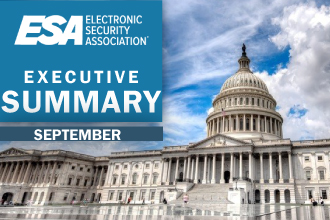September brought several bills in California to an expected conclusion. AB 1906 and SB 327 relating to information privacy and connected (IoT) devices was signed into law. California also enacted an expansion of its Consumer Privacy Act. SB 1121 was signed by the Governor on September 23rd and is still being evaluated for its potential ramifications to businesses that must comply with its numerous provisions. September brought several bills in California to an expected conclusion. AB 1906 and SB 327 relating to information privacy and connected (IoT) devices was signed into law. California also enacted an expansion of its Consumer Privacy Act. SB 1121 was signed by the Governor on September 23rd and is still being evaluated for its potential ramifications to businesses that must comply with its numerous provisions.
Less than one hour after Governor Brown signed California’s sweeping “net neutrality” law, SB 822, the Department of Justice filed suit against the state in federal district court. It is most likely this case will end up in the Supreme Court as California is just one of four states so far that have enacted similar legislation.
California SB 1412 amended the current “ban the box” statute, by providing exemptions for employers who are required by law to check criminal backgrounds, the position being applied for requires carrying a firearm or the applicant is prohibited by law from holding a position because of a particular criminal conviction, even if it was expunged.
Delaware HB 335-1 establishes the Delaware School Safety and Security Fund to provide partial or full funding for electronic security infrastructure improvements to public schools. The bill provides for $5 million in initial funding. This bill was signed by the Governor on September 10, 2018.
New Jersey AB 2810 and SB 2963 would create an occupational licensing review process. A regulatory officer (appointed by the Attorney General) would establish and implement a protocol, to review and approve regulations, actions and decisions proposed by any board under the regulatory officer’s purview, to determine whether the proposed regulation, action, or decision has the potential to displace competition, and, if so, whether it is consistent with and furthers or promotes clearly articulated and affirmatively expressed State policy or the inherent, logical, or ordinary result of that policy.




